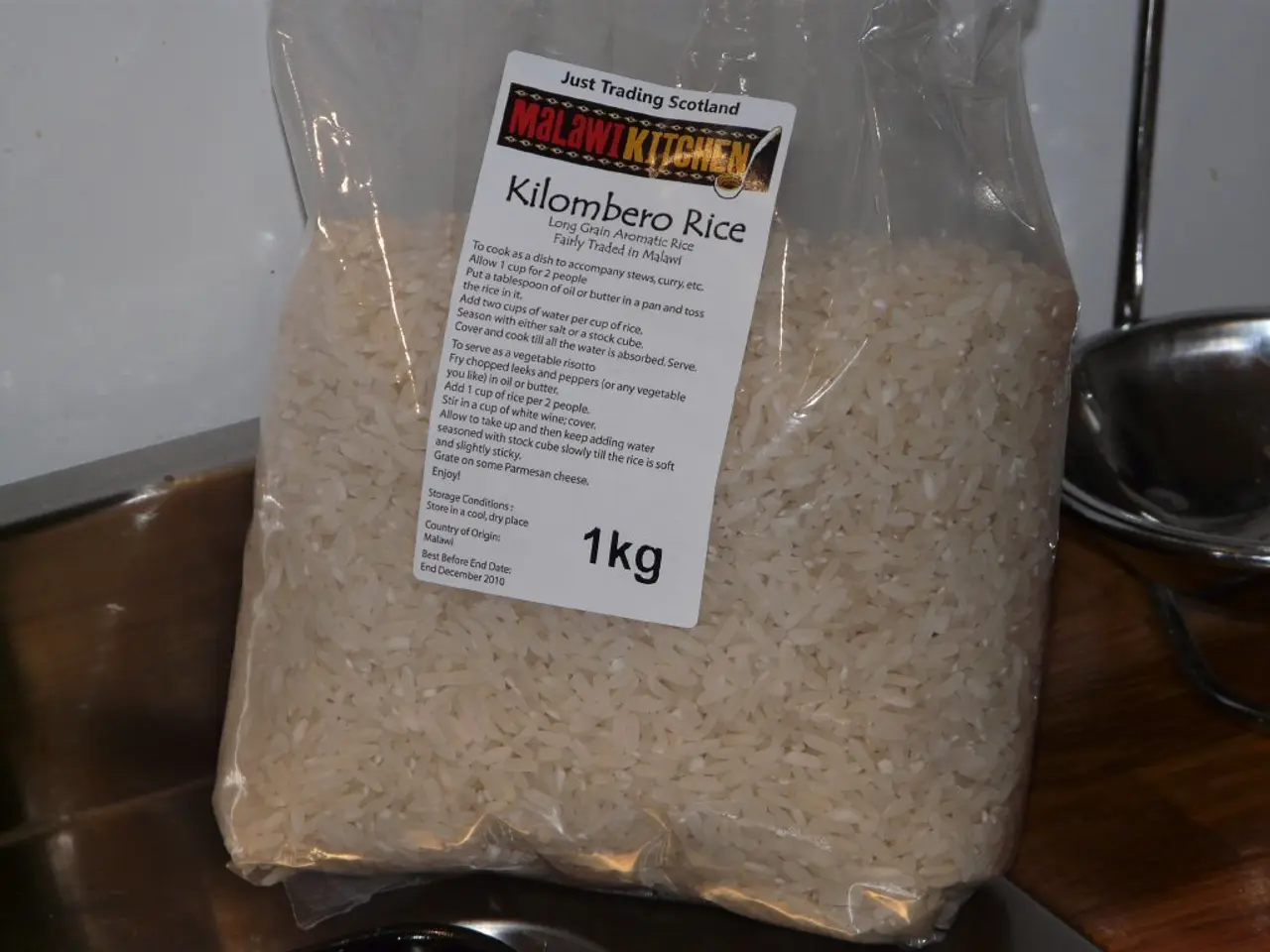Farmers of rice are set to receive financial assistance amounting to B40 billion
Thailand Announces 2026 Rice Support Budget of 61.7 Billion Baht
Thailand's government has announced a significant rice support budget for the 2025-2026 production year, amounting to approximately 61.7 billion baht (around 1.84 billion USD). This budget aims to stabilize paddy prices and directly support rice farmers across the country [1][3].
The focus of this support package is on both the wet-season (main crop) and other crops. The wet-season rice output is expected to reach about 19.7 million tonnes for November–December 2025, representing approximately 72% of total production [1]. This indicates a strong emphasis on the main crop period.
Three major programmes have been approved by the government to absorb peak production and stabilize prices. These include a credit programme to delay the sale of paddy by farmers, a loan programme to support agricultural institutions in purchasing and adding value to paddy, and an interest compensation programme for rice traders who stockpile paddy [1].
These programmes are designed to absorb rice from the market during peak periods, reduce price pressures, and help farmers sell at reasonable prices, ensuring more stable incomes over the long term [1].
Regarding caps per household and support adjustment plans, specific per-household payment caps or quotas were not explicitly detailed in the available sources.
The government is also working on policies to adjust rice cultivation areas and market interventions to address falling export prices and reduced domestic fertilizer demand, which are factors impacting farmer incomes and cultivation decisions. For example, fertilizer demand has slowed due to weak rice export prices, despite favorable rainfall [5]. The government has also introduced some discounts on fertilizers to stimulate demand [5].
In addition, the government is working to adjust rice varieties to match market demand. The budget is intended to support 4.6 million rice farmer households. The funds will cover both the 2025 off-season rice and the 2025/2026 main crop. The support rate for each rai of rice paddy land is set at 1,000 baht, with a cap of 10 rai per household [2].
It is important to note that the government's decision in 2023 not to financially support rice prices is part of a plan to phase out rice price support over the next 10 years [4]. Adjustments to rice farming cannot happen quickly, and government support may still be necessary in years when rice prices fall [6].
The Deputy Prime Minister and Finance Minister, Pichai Chunhavajira, made these announcements after the committee's meeting yesterday. He encouraged farmers to switch to higher-yield varieties in 2023. Mr. Pichai also stated that the global economic slowdown in the previous year affected Thailand's economy [7].
Several countries, particularly India, have been exporting rice to the global market this year, putting downward pressure on international prices [8]. Despite this, Thailand's 2026 rice support budget is a significant step towards ensuring the financial stability of its rice farmers and maintaining the country's position as a major player in the global rice market.
[1] The Nation Thailand. (2023). Thailand to spend 61.7 billion baht on rice support. Retrieved from https://www.nationthailand.com/news/40010740
[2] Bangkok Post. (2023). Rice farmers to get 1,000 baht per rai in 2025. Retrieved from https://www.bangkokpost.com/business/2084591/rice-farmers-to-get-1000-baht-per-rai-in-2025
[3] Reuters. (2023). Thailand to spend 61.7 billion baht on rice support in 2026. Retrieved from https://www.reuters.com/business/thailand-to-spend-61-7-billion-baht-rice-support-2026-2023-04-20/
[4] The Nation Thailand. (2023). Thailand to phase out rice price support over 10 years. Retrieved from https://www.nationthailand.com/news/40009204
[5] Farmers Weekly. (2023). Thailand introduces fertilizer discounts to stimulate demand. Retrieved from https://www.fwi.co.uk/international/thailand-introduces-fertiliser-discounts-to-stimulate-demand
[6] The Nation Thailand. (2023). Thailand's rice farming adjustments won't happen quickly, government support may still be necessary. Retrieved from https://www.nationthailand.com/news/40009210
[7] Bangkok Post. (2023). Global economic slowdown affects Thailand's economy: finance minister. Retrieved from https://www.bangkokpost.com/business/2084480/global-economic-slowdown-affects-thailands-economy-finance-minister
[8] Reuters. (2023). Several countries exporting rice to global market, putting downward pressure on prices: analysts. Retrieved from https://www.reuters.com/business/several-countries-exporting-rice-global-market-putting-downward-pressure-prices-analysts-2023-04-17/
The government's 2026 rice support budget of 61.7 billion baht is not only focused on the rice industry, but also extends to the broader business sector, as it aims to stabilize paddy prices and directly support rice farmers. In addition, this budget can have a significant impact on Thailand's finance, as the stability of rice farmers' incomes can influence the country's overall economic health.




